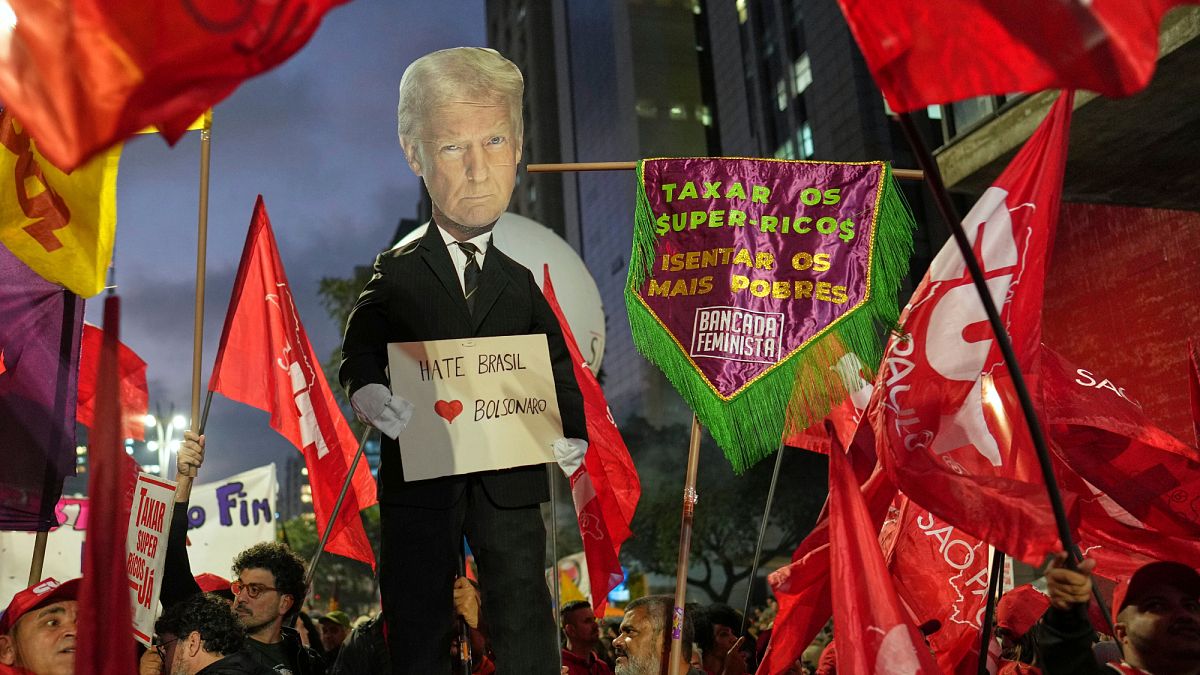

The interconnected nature of the global economy has become even more apparent this week, as various nations and regions face economic challenges and develop strategies to adapt and respond. From international tariff tensions to national economic contractions, each event provides an opportunity for growth and solidarity.
In Brazil, thousands of demonstrators took to the streets of São Paulo to voice their concerns over recent economic developments. The peaceful rally held on Thursday focused on two key issues: the imposition of tariffs by U.S. President Donald Trump and the call for higher taxes on the super-rich within Brazil. Protesters expressed their dissatisfaction with what they see as unfair trade policies threatening economic stability and exacerbating inequality. While the gathering highlighted significant displeasure, it also demonstrated a collective desire for change through increased social equity and fiscal responsibility.
This sentiment is underscored by recent actions taken by President Donald Trump, who announced substantial 50% tariffs on Brazilian products entering the U.S. market. This decision is part of a broader trade strategy that includes similar tariffs against numerous other countries. The justification for these measures was indirectly linked to political dynamics within Brazil, specifically referring to what Trump described as a “witch-hunt” against former President Jair Bolsonaro. The proposed penalties have prompted concerns regarding potential inflationary effects in the United States, bringing attention to how such international policies ripple across global markets.
The European Union has responded diplomatically to the trade tensions, indicating a willingness to suspend retaliatory tariffs on American goods. The EU’s approach involves a strategic pause, giving time for dialogue and presenting an opportunity for the United States to reassess its position. This response highlights a broader theme of cooperation and negotiation over conflict amid trade uncertainties.
Meanwhile, in the United Kingdom, the economic landscape is also experiencing turbulence. The economy contracted in May, defying predictions of slight growth. This downturn, coupled with ongoing expectations of tariff impacts and potential tax increases, has urban centers and financial markets readjusting their strategies. Responding to concerns about economic stagnation, the UK’s Chancellor of the Exchequer, Rachel Reeves, is preparing to address stakeholders with reassuring messages that aim to inspire confidence and articulate visions of opportunity despite the challenges.
Efforts to bolster the UK’s financial market are evident in discussions surrounding potential advertising strategies reminiscent of historical campaigns from the Thatcher era. These initiatives are designed to reinvigorate the London Stock Exchange, retaining homegrown enterprises and attracting new investments. Encouragingly, these approaches emphasize innovation and resilience, reassuring investors during uncertain times.
These global economic dynamics illustrate how interconnected our world has become and underscore a concerted need for mindful strategies to foster economic stability and growth. By navigating these complexities with poise and vision, countries can leverage challenges into opportunities for future prosperity. As the global marketplace evolves, it is through understanding, adaptation, and collaboration that nations can ensure enduring economic health and equitable progress for their citizens.
Source: {link}
